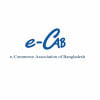Amazon, Walmart to enter Bangladesh in two years
American e-commerce giant Amazon and retail heavyweight Walmart will start operations in Bangladesh within a couple of years as the global companies are increasingly making foray into the market, said a Bangladeshi entrepreneur yesterday.
Walmart already has a very big office in Dhaka and is planning to start business while Amazon is in talks with the government, said Rezwanul Haque Jami, vice-president of the e-Commerce Association of Bangladesh (e-Cab).
With the launch of their operations, the market ecosystem will change and the local players will feel the heat, he said. Chinese e-commerce giant Alibaba is already operating in Bangladesh through Daraz, said Jami, also the coordinator of the government's e-commerce project Eakshop.
He spoke at a roundtable on “Local e-commerce industry: issues, challenges and solutions” at The Daily Star Centre in Dhaka. At the discussion, local e-commerce companies called for protection in the fast-expanding online market as the government plans to allow foreign companies to own 100 percent stakes in local ventures.
They said they are not against foreign investment but the government needs to protect local investors.
“We need foreign investments. At the same time, local companies which have been nursing the market for the last seven years also have a right to get protected,” said Muhammad Abdul Wahed Tomal, general secretary of e-Cab. The country's top 10 homegrown online ventures organised the discussion in the backdrop of the government's initiative to amend the recently approved Digital Commerce Policy.
On July 16, the cabinet had approved the Digital Commerce Policy, limiting foreign investment at no more than 49 percent in local e-commerce ventures.
But the government decided to reconsider the limit when some global players operating in Bangladesh voiced concerns about it. The government plans to allow foreign companies to own 100 percent shares in local e-commerce ventures.
The size of the local e-commerce market size is about Tk 1,000 crore and about 100 ventures account for Tk 700 crore in annual sales. Currently, the market is catering 30,000 orders a day and it is more than doubling every year.
“The market has been growing at more than 100 percent every year and has enormous opportunity to grow further,” said Tomal.
Local ventures said the government needs to clear its position on whether only two or three foreign players will dominate the market and grab all the businesses after two years or there will be some local ventures alongside the foreign entities.
Global players usually enter a market and capture it within a couple of years through price dumping like they did in Pakistan, Sri Lanka and some countries in Africa, said AKM Fahim Mashroor, founder of ajkerdeal.com, one of the leading local e-commerce ventures.
The e-Cab is preparing a list of recommendations about the policy which will be sent to the government. The e-Cab will propose foreign companies recruit 90 percent of their staff from locals to run operations in Bangladesh, said Tomal.
Other recommendations will include: foreign firms will have to host their websites locally and ensure warehouse's presence and customer data security.
Zeeshan Kingshuk Huq, co-founder and chief executive of kiksha.com, said foreign investment is needed to develop the local market, not to destroy it.
“The US, the UK, China and India are the most protected market. Thanks to this protection, their local firms are capturing the rest of the markets in the world.”
Asikul Alam Khan, founder and CEO of PriyoShop, said new challenges have emerged at a time when the market is just getting ready to take off. “We have nurtured the market and it is moving towards maturity. Now, some global giants want to capture it.”
Mahmudul Hasan Sohag, chairman of OnnoRokom Group, said foreign companies want a level-playing field through a brutal process.
“But the government should understand the level-playing field by looking at historical context and country perspective.”
Syed Mohammad Kamal, country manager of MasterCard Bangladesh, said the Digital Commerce Policy was passed following a huge consultation process.
The government should follow the same before amending it, he said.
Senior officials of e-commerce firms such as bagdoom, pickaboo, othoba, nrbbazaar, and HungryNaki were also present.

 For all latest news, follow The Daily Star's Google News channel.
For all latest news, follow The Daily Star's Google News channel. 








Comments